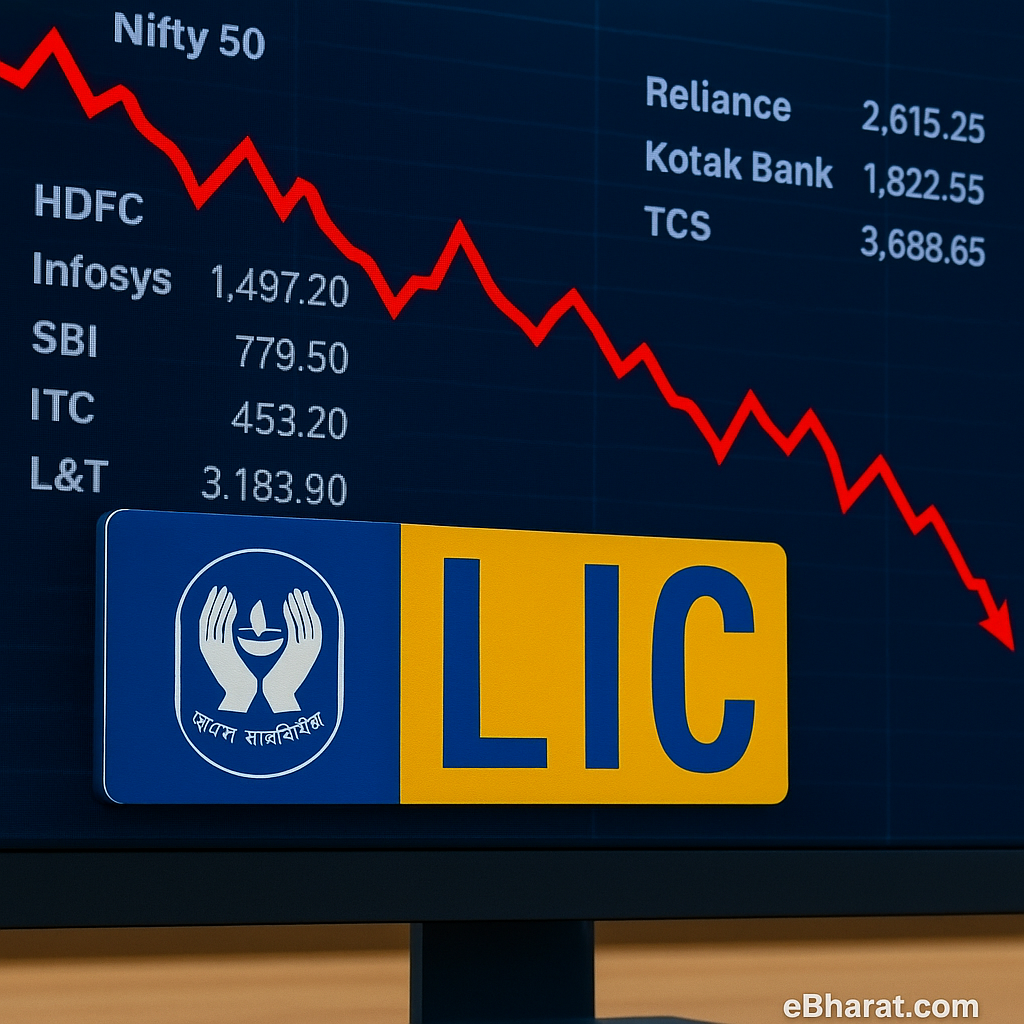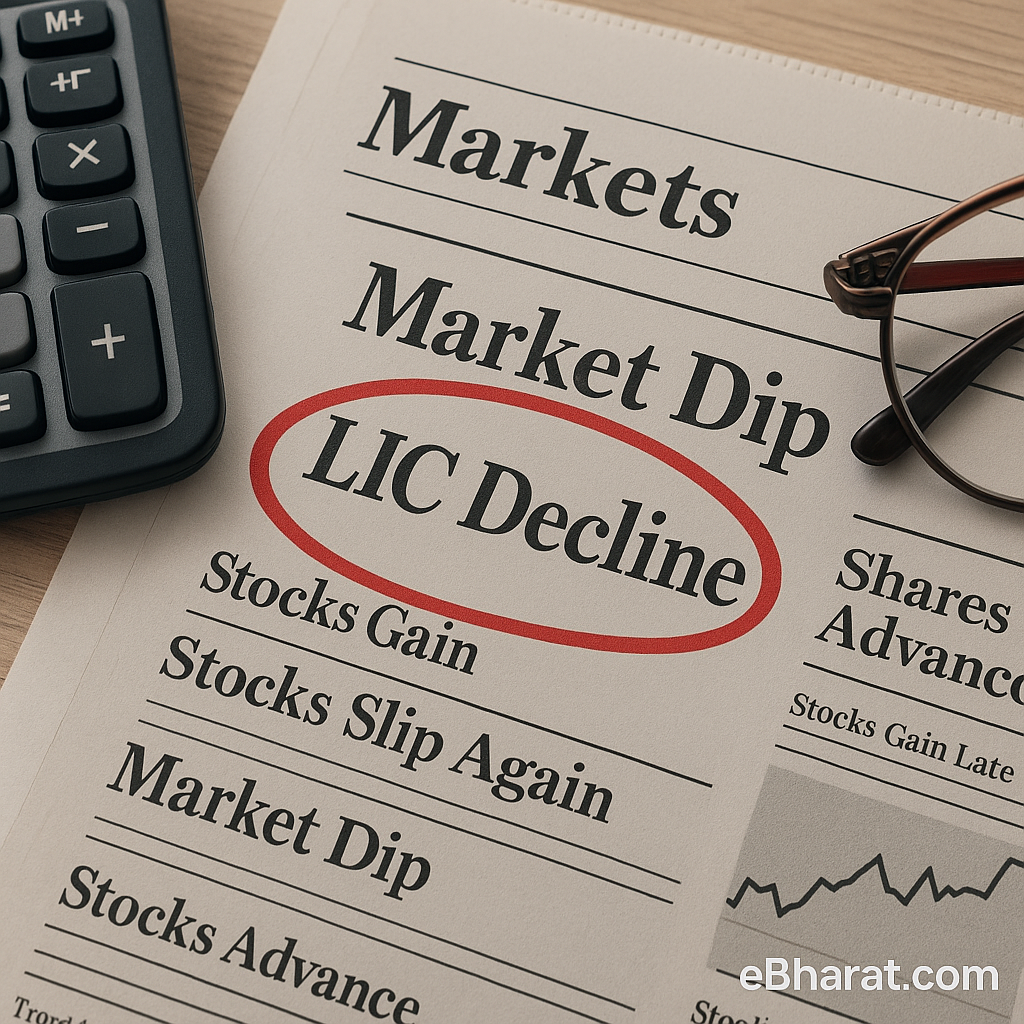
August 4, 2025 |
The Life Insurance Corporation of India (LIC), India’s largest and most influential domestic investor, suffered a major blow in July as its equity portfolio value declined by nearly ₹66,000 crore in just one month.
The drop comes on the back of a widespread correction in India’s stock markets, with several bluechip companies witnessing sharp declines due to weak Q1 earnings, global volatility, and persistent foreign fund outflows.
Bluechips Drag LIC’s Holdings Down
LIC holds sizeable stakes in some of the biggest companies listed on the NSE and BSE, including Reliance Industries, HDFC Bank, Infosys, and ITC. These stocks form the backbone of its long-term equity investment strategy.
But in July:
- Reliance Industries fell over 5.3%, driven by margin pressures and weak global cues
- HDFC Bank dropped 3.9%, post its merger with HDFC Ltd
- Infosys saw a 6% drop, after cutting its full-year revenue guidance
- TCS, ICICI Bank, and Bajaj Finance also saw minor to moderate declines
Together, these bluechips eroded a significant chunk of LIC’s listed portfolio value — taking it from ₹11.9 lakh crore at June-end to ₹11.24 lakh crore by July 31, 2025
“The fall doesn’t mean LIC sold anything,” clarified a Mumbai-based equity strategist.
“This is simply a mark-to-market decline based on the share prices of companies it owns. Since LIC holds large chunks of these firms, its portfolio mirrors their performance.”
LIC’s Portfolio Still Towering Over Other DIIs

Even after the decline, LIC’s equity holdings continue to dwarf those of other domestic institutional investors (DIIs), including mutual funds and pension funds. Its top investments still include:
L&T
Reliance Industries
ITC
HDFC Bank & HDFC Ltd
SBI
Infosys
Many of these stocks have been in LIC’s books for over a decade, with periodic top-ups and long holding horizons.
Why It Matters for Markets — and Policyholders
The dip in LIC’s equity book highlights the risks even the biggest investors face in volatile markets. While the insurer is known for its stability and long-term approach, short-term market corrections do affect its investment returns, which in turn can influence:
- Annual bonus declarations for participating policyholders
- LIC’s earnings outlook post its IPO
- Adjustments in future equity-debt allocation
- Pressure from shareholders for higher returns
Moreover, LIC’s portfolio movement often sets the tone for DII sentiment across the Indian stock market. A sudden dip — even if temporary — tends to ripple through investor confidence.
While LIC remains a long-term heavyweight in India’s equity markets, the July dip serves as a reminder that even the most stable portfolios aren’t immune to market volatility — especially when bluechip giants wobble.
LIC’s recent move to hedge global risks through a $1 billion deal with top Wall Street banks shows how the insurer is preparing for market volatility on a global scale — even as its domestic equity book takes a short-term hit. Read more about LIC’s hedge strategy here.












